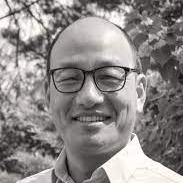Columns
The future of democracy and peace
Hyper-nationalism, unilateralism and inward-looking policies do not serve us in the long run.
Dhirendra Nalbo
Across the globe, as governments grapple with how to move forward with the economic, political, and psychosocial damage that the pandemic has spawned, once more we are reminded that hyper-nationalism, unilateralism and inward-looking policies do not serve us in the long run. This is what we witnessed amidst inward-looking populist nationalism that emerged in many Western democracies. In many ways, such politics stoked deeper racial, ethnic and ideological divisions and disregarded cooperation and multilateralism among states. Consequently, it not only limited the ability of governments to contain the pandemic, but also fundamentally hampered the functionality of liberal democracy, posing a threat to peace and security. Under this international political condition, the key question we must ask is: What does the future of democracy and peace look like in Asia?
Democracy allows citizens to play a central role in deciding their future. It helps us to nurture our collective interests, shared values and secure a common future. In that sense, peace—a dignified way of living life for all citizens—is inseparably yoked in democracy. Sharing views is crucial for healthy democracies. Citizens who believe in democracy participate in fierce debates and contestations with their governments. Presently, we see such protests in the streets of the United States, Myanmar, Hong Kong and Nepal, to name a few.
Democracy in decline
But over the last 15 years, democracy has been in a steady decline. In 2005, according to a Freedom House report, 89 countries were 'free' or democracies. In 2020, only 82 were. Meanwhile, the number of 'not free' or authoritarian countries increased from 45 to 54. Most of the countries that turned into authoritarian regimes are European Union countries: Poland, Slovenia, Hungary and Serbia. Meanwhile, almost all Central Asian countries moved towards more entrenched authoritarian governments. Strikingly, the Economist's Democracy Index recently downgraded the US to 'flawed democracy' meaning not 'full democracy.
What is the state of democracy in Asia? According to Freedom House, four of the 10 Association of Southeast Asian Nations (ASEAN) countries are 'partly free', and six are 'not free'. Meanwhile, almost all Middle Eastern countries fall under the 'not free' categories. In South Asia, seven countries, which includes Nepal, were labelled 'partly free', and Afghanistan 'not free'. More interestingly, India, one of the biggest democracies and the dominant power in the region, fell under democratic backsliding. Consequently, the country’s global democracy ranking fell from 27th to 53rd. In the meantime, the Freedom House report ranks it as a 'partly free' country. Unfortunately, democracy's decline in Asia will further deepen due to patterns that emerged in Western democracies and have spread: self-serving, insular and protectionist policies.
As the Trump era indicates, inward-looking democracy damages not just domestically but also internationally. In many ways, because of the 'America first' policy, increased white supremacist and anti-immigration movement, the US globally lost its moral standing for promoting democracy overseas. In Europe, the inward-looking populist trends such as Brexit and the rise of ultranationalist or far-right parties have hurt the future of democracy and peace as well. A glaring example of this is the emergence of widespread anti-immigration sentiment. Far-right activists were touched neither by hungry and desperate immigrants nor by the bodies of dead migrant children and adults that washed up on EU seashores.
The illiberal populist activity impeded and hurt nobody more than citizens in Asia’s 'illiberal democracies' who believe in democracy. For these citizens, the key principles of democracy, namely tolerance, coexistence, equality, inclusion, multiculturalism and multilateralism that Western democracies championed, seemed like a political sham. Most importantly, these citizens felt like they were being cheated by the 'matured' democracies such as the US and other Western democracies. Once the pandemic struck in these increasingly illiberal democracies, cooperation and multilateralism among states—the hallmarks of the post-World War II liberal order—seemed to have evaporated. Vaccine nationalism has further hurt the functionality of liberal democracy. Meanwhile, call it 'vaccine diplomacy', Beijing's vaccines reached the arms of people from Argentina to Azerbaijan, and from Nepal to Namibia.
Liberal vs. illiberal democracy
Democracy can be flawed, messy and cumbersome. Making it work for all requires citizens to engage and adhere to the rule of law. But many citizens from illiberal democracies who are desperate to bring a change in their lives often find the system unhelpful; many of them who live technologically driven lives wish for fast-paced public service delivery and improved living conditions. They get impatient with lengthy, contentious and messy democratic processes. These, in turn, cause political fatigue towards democracy.
This condition opens a space for an alternative to liberal democracy: illiberal democracy. If the US and Western democracies continue their inward-looking nationalist 'democracy', Beijing will be more than happy to fill the space with its 'tributary system'—a fluid and bilateral 'Sino-centric' diplomacy, often called the 'debt trap' or 'wolf-warrior' approach. In such conditions, the Chinese version of international engagement, which is fast because it does not go through messy democratic processes, provides a promising alternative for illiberal democracies. Under such conditions, we are likely to see greater rivalry between the US and China inciting more polarisation and division, potentially leading to violent conflict and instability. This then certainly means a further decline in democracies, not just in Asia but across the globe.
The big losers in this geopolitical rivalry marked by inward-looking policies are the people who want to live in an equitable, peaceful democratic system. What is needed then is to focus on holding dialogue and discussion among and between governments. As one veteran diplomat told me, 'The only way to resolve conflict is to sit down and talk about it.' Holding dialogue not only helps us to resolve conflicts, but also provides us a space to share our values, interests, concerns and common future—the key aspects of building democracy and peace that works not just for a few powerful people but for all.




 21.12°C Kathmandu
21.12°C Kathmandu















